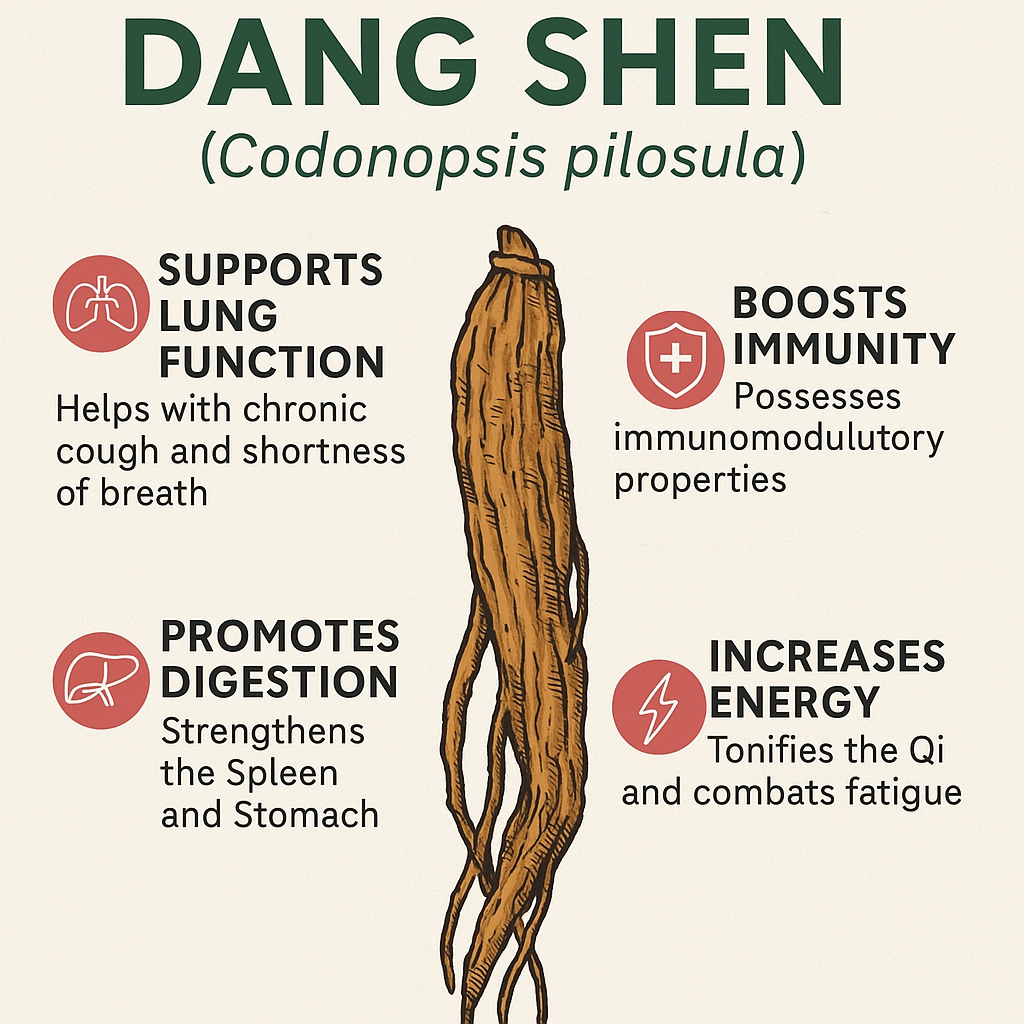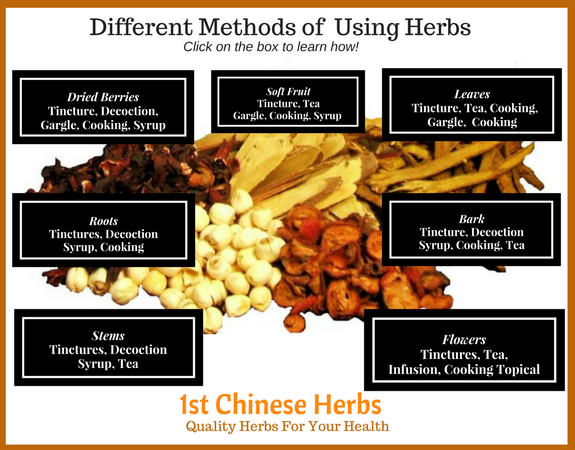Codonopsis (Dang Shen): The Adaptogenic Herb for Vitality and Balance
Codonopsis pilosula, commonly known as Dang Shen or "Poor Man’s Ginseng," is a revered herb in Traditional Chinese Medicine (TCM). Known for its adaptogenic properties, this herb is a natural powerhouse for boosting energy, supporting immunity, and promoting overall well-being.

What is Codonopsis (Dang Shen)?
Codonopsis is a perennial plant native to China and other parts of Asia. Its roots are the most valued part, often used as a more affordable alternative to ginseng. With its sweet taste and neutral energy, Dang Shen is a staple in TCM for nourishing the body and restoring balance.
Health Benefits of Codonopsis
-
Boosts Energy Levels: Codonopsis is an adaptogen, helping the body combat fatigue and stress by regulating energy flow (Qi).
-
Strengthens Immunity: Rich in polysaccharides, it enhances immune function and helps the body fight infections.
-
Supports Digestion: It aids in improving appetite, reducing bloating, and alleviating digestive discomfort.
-
Improves Respiratory Health: Codonopsis is often used to address chronic coughs, shortness of breath, and other lung-related issues.
-
Promotes Blood Health: It supports blood building and circulation, making it beneficial for individuals with anemia or low energy.
Why Codonopsis Works
The effectiveness of Codonopsis lies in its bioactive compounds, including:
-
Polysaccharides: Boost immunity and provide antioxidant benefits.
-
Saponins: Support energy regulation and stress adaptation.
-
Alkaloids and Flavonoids: Offer anti-inflammatory and antimicrobial properties.
These compounds work synergistically to nourish the spleen and lungs, two vital organs in TCM associated with energy and immunity.
Traditional Chinese Medicine Perspective
In TCM, Codonopsis is classified as a sweet and neutral herb that targets the spleen and lung meridians. It is used to:
-
Tonify Qi (vital energy).
-
Strengthen the body's resistance to illness.
-
Harmonize the effects of other herbs in herbal formulas.
How to Use Codonopsis
Codonopsis is versatile and can be consumed in various forms:
-
Tea: Steep 5–10g of dried Codonopsis root in hot water for 10–15 minutes.
-
Decoction: Boil 10–15g of the root in 500ml of water for 20–30 minutes for a concentrated herbal drink.
-
Soup: Add Codonopsis root to soups or stews for a nourishing meal.
-
Powder or Capsules: Take as a supplement, following the recommended dosage on the product label.
Why Choose Codonopsis Over Ginseng?
While ginseng is highly prized, Codonopsis offers similar benefits at a more affordable price point. It is gentler on the body, making it suitable for long-term use and for individuals with sensitive constitutions.
Herbal Information on Codonopsis Root in Bulk Powder Form
Common Name: Codonopsis Root
Botanical Name: Codonopsis Pilosula, Radix
Channels/Meridians: Lung, spleen
Pin Yin Name: Dang Shen
Other Ingredients: None, nothing has been added to this product.
Package Size: 1 pound
Form: Powder - Fine powder 80 to 100 mesh size (similar to the consistency of baking flour)
Dosage: Follow doctors instructions on how to use this herb.
Origin: China
Brand: Organic NuHerbs
Cautions: Do not use if pregnant or nursing. Not to use in cases of infection of the digestive system.
Additional Information: Tonifies middle jiao, Enhances qi
Product Properties: Sweet, Neutral
Check out our How to Use Bulk Herbs page to see how to use herbs correctly. Our web page is constantly expanding, as of today we have articles on:
- How to make salves, poultice, tinctures, teas, capsules, gargles, and foot bathes
- How to make a citrus facial splash
- Cayenne pepper: Caterpillar and aphid spray ( Natural insect repellent )
- Citrus potpourri basket
About Plum Flower Quality Herb Powders
Plum Flower is an established worldwide manufacturer of high-quality Chinese herbs, and innovative Chinese medicinal herbs and products. Plum Flower uses sulfur-free herbs and laboratory tests its products for contamination and heavy metals, such as mercury, lead, and pesticides.
- Made at GMP internationally certified facilities (Good Manufacturing Practices) Quality control tests are done at the manufacturing site and at third party labs to confirm results.
- Manufactured using Unsulfured, Chlorine free, Aluminum Phosphate free herbs when possible.
- Microbials and heavy metals tested. No preservatives.
Traditional Chinese Herbs
Chinese Traditional herbs should be regarded as an added feature to modern western healthcare, and not as a replacement. Chinese traditional herbs ( Teas ) emphasize harmony, and balance.
References:
https://www.ncbi.nlm.nih.gov/pmc/articles/PMC9476800/
https://pmc.ncbi.nlm.nih.gov/articles/PMC10117688/
https://www.sciencedirect.com/science/article/abs/pii/S0378874124006330
https://www.americandragon.com/Individualherbsupdate/DangShen.html
https://en.wikipedia.org/wiki/Codonopsis_pilosula
https://www.dovepress.com/integrating-network-pharmacology-and-bioinformatics-to-explore-the-eff-peer-reviewed-fulltext-article-DDDT


























